Building Bridges to Recovery: The Power of Social Connections

Recovery from addiction is a multifaceted process that extends beyond physical abstinence. One of the most influential factors in fostering enduring recovery is the presence or absence of social support. As research underscores, social isolation significantly hampers mental health and increases the risk of relapse. Conversely, robust social networks serve as protective factors, facilitating psychological well-being, reducing stress, and promoting sustained sobriety. This article explores the importance of addressing social isolation in recovery, the profound impact it has on mental health, and practical strategies to develop supportive social environments.
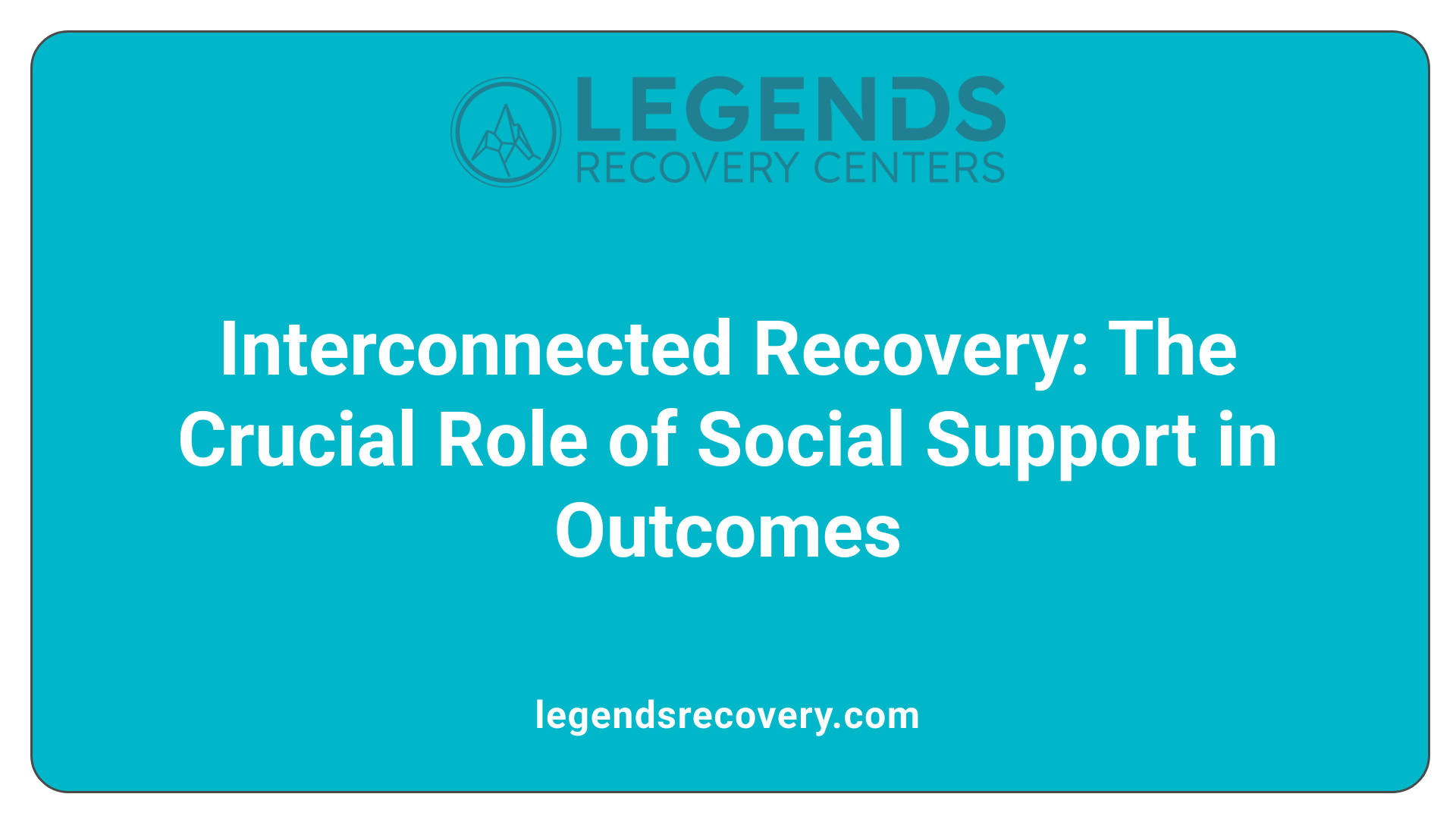
Social support plays a vital role in the journey to recovery from alcohol and drug use. It offers emotional guidance, tangible resources, and positive reinforcement, all of which help individuals cope with the challenges of addiction. Studies show that strong social networks are linked to lower substance use rates after treatment and higher treatment retention. Support from family, friends, peers, and organized groups like Alcoholics Anonymous (AA) provides a sense of security, motivation, and accountability.
Having a supportive community helps reduce stress and enhances mental health, which are crucial during recovery. Social support also discourages previous substance-using behaviors and rewards the development of healthier habits. For example, participation in AA not only increases abstinence rates but also helps individuals build meaningful relationships, enlarging their social networks and boosting their motivation to stay sober.
Ultimately, the presence of reliable social connections positively impacts health outcomes. It fosters a sense of belonging and purpose, making it easier for recovering individuals to maintain lifestyle changes and continue on their path to wellness. Building and maintaining these relationships are fundamental in preventing relapse and supporting long-term recovery success.
Participation in structured recovery environments, such as Oxford Houses, demonstrates how social support influences treatment retention and abstinence. Longer stays in recovery homes are associated with better recovery outcomes, largely because they foster a multilevel support system, involving both individual and communal networks.
Social interactions within these environments offer opportunities for shared experiences, accountability, and encouragement. Support groups like AA emphasize service roles where helping others enhances motivation and reinforces sobriety, significantly lowering the risks of relapse, criminal activity, and other negative outcomes.
Moreover, social networks' structure—including network size, quality, and the presence of important persons—affects stress levels and success in recovery. Robust, high-quality relationships are linked to higher quality of life, subjective well-being, and lower stress, which all contribute to sustained abstinence.
Peer support and organized groups form the backbone of a supportive recovery community. These platforms provide a shared space where individuals can express themselves, seek advice, and find understanding from others with similar experiences.
Support groups like AA offer more than just a place to share struggles—they promote positive behavioral changes, provide practical help, and reduce feelings of loneliness and social isolation.
Engagement in these groups has been associated with higher abstinence rates, better relationship quality, and increased social networks. They also help combat social isolation by creating a sense of belonging, which is particularly crucial after treatment, when individuals often feel estranged from their previous social circles.
By fostering a community of mutual aid, these groups help build resilience and reinforce the individual's commitment to recovery, making social support a cornerstone in the sustained success of addiction treatment.
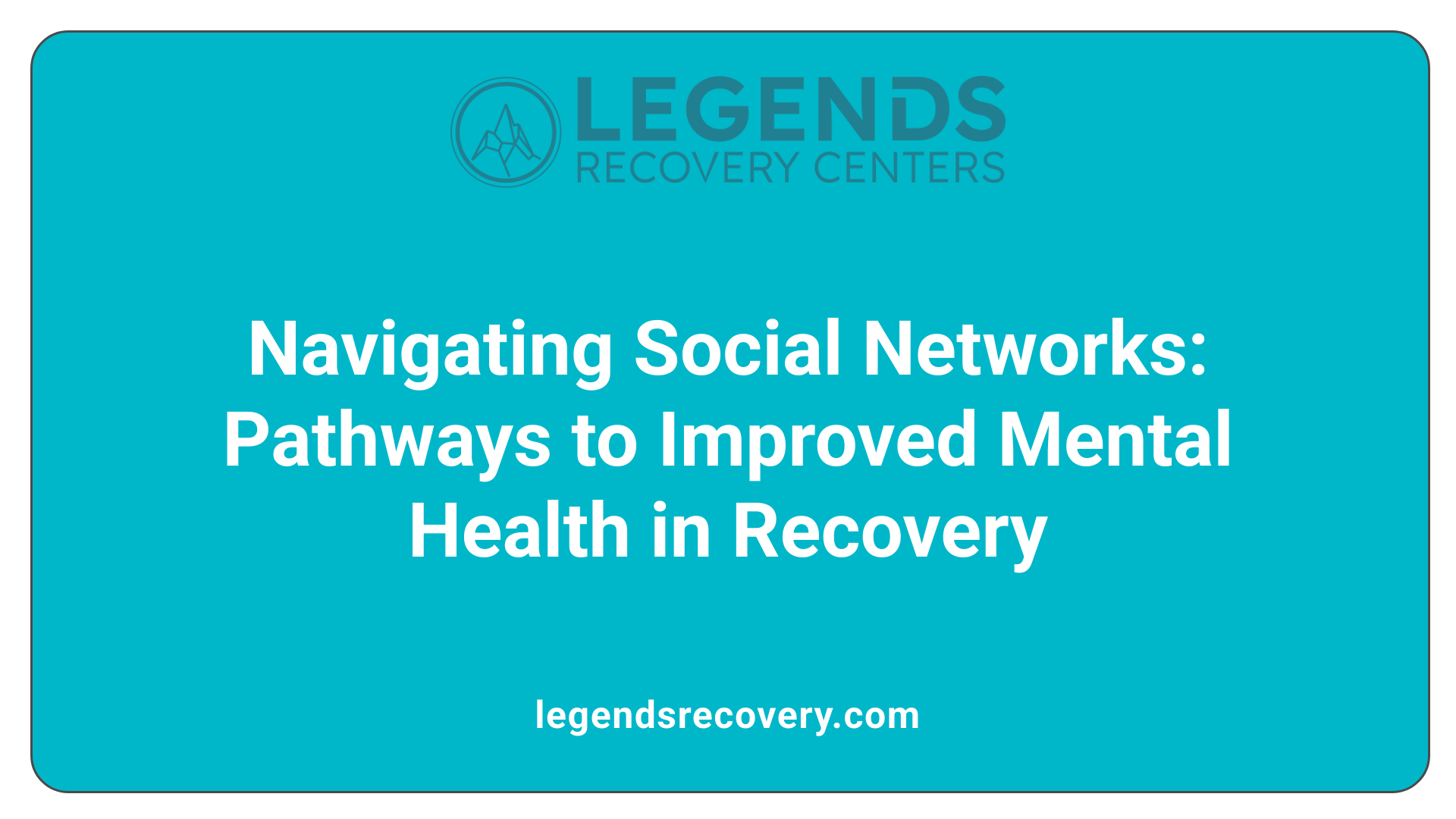
Social skills play a crucial role in the recovery process because they facilitate the development and maintenance of supportive relationships. These relationships serve as vital sources of emotional guidance, informational support, positive reinforcement, and practical resources that help individuals manage stress and cope with challenges.
Strong social skills enable recovering individuals to build a network that encourages healthier behaviors and provides accountability. Participation in mutual support groups such as Alcoholics Anonymous (AA), or residing in recovery homes like Oxford Houses, enhances social connections by fostering a sense of community and shared purpose.
Understanding the structure of social networks—who is involved, the quality of relationships, and the overall network composition—is essential. These elements influence stress levels and recovery success. Networks with larger size, high-quality connections, and influential persons known as 'important persons' tend to provide more substantial support.
The influence of social support operates at multiple levels, from individual relationships to the collective environment of support homes or communities. This multilevel system creates a reinforcing environment that encourages sustained abstinence, reduces feelings of isolation, and enhances overall mental health.
In summary, social skills are foundational for engaging with and nurturing social networks. They allow individuals to access emotional comfort, practical help, and social reinforcement, which bolster resilience and facilitate long-term recovery.
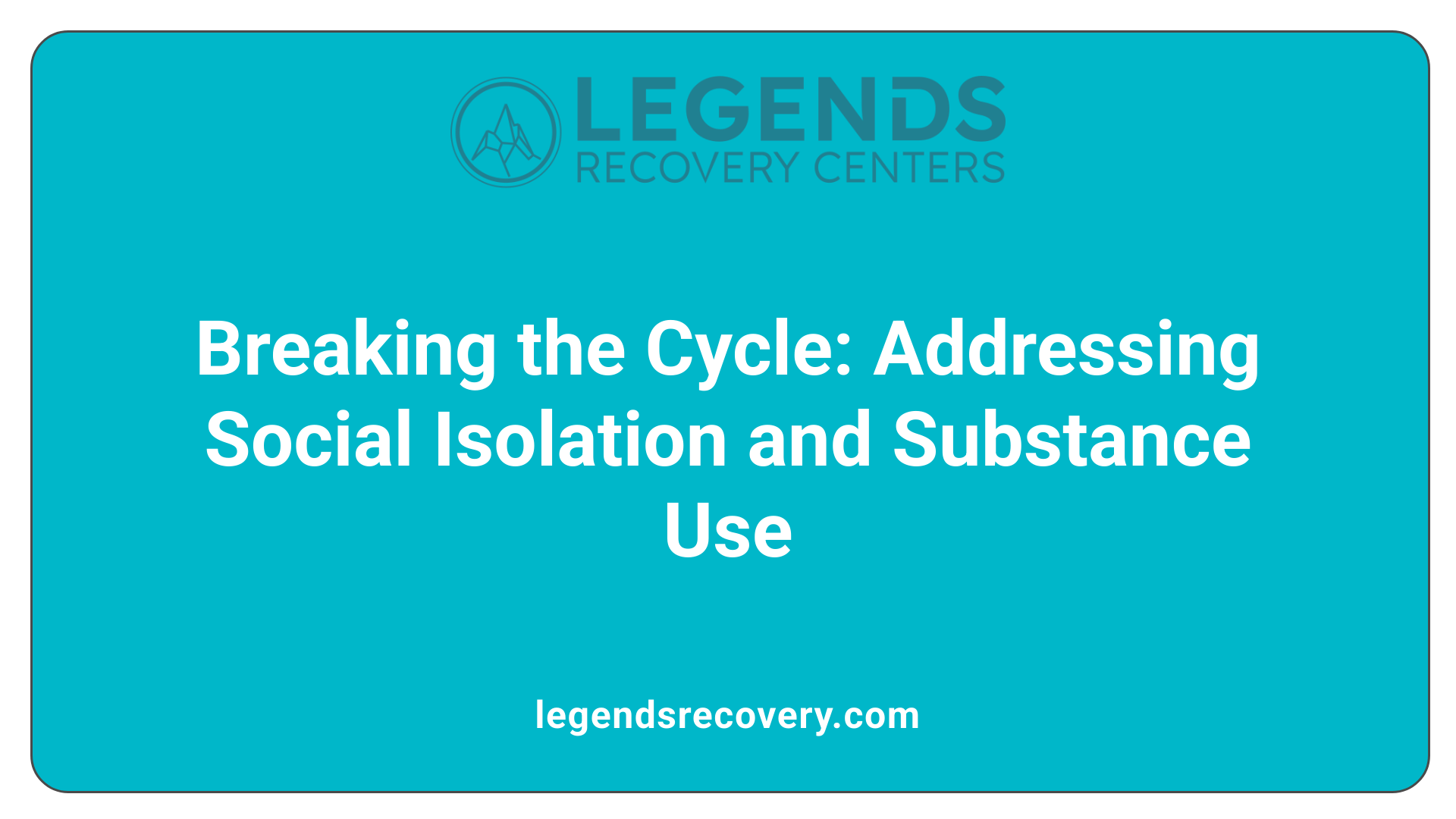
Social isolation can significantly hinder recovery from addiction. When individuals feel disconnected from others, they may experience heightened stress, depression, and anxiety, which are triggers for relapse. Lack of social support makes it harder to stay committed to sobriety, and feelings of loneliness can intensify cravings or temptations to use substances again.
Research shows that addressing social isolation during recovery is essential. Engaging in social connections—such as support groups, family, or community activities—provides encouragement, accountability, and emotional relief. These social ties help individuals cope with stress and maintain motivation, making sustained abstinence more achievable.
Loneliness, a subjective feeling of being isolated, is a strong driver for substance use. Often, individuals turn to alcohol or drugs as a way to numb feelings of loneliness or emotional pain. This reliance can quickly become a cycle: loneliness leads to substance use as a coping mechanism, which in turn worsens social withdrawal, deepening feelings of isolation.
Especially among young people and vulnerable populations, loneliness has been linked to higher risks of high-risk drinking, marijuana use, and full-blown dependence. The emotional relief provided by substances can seem temporary, but it often exacerbates the emotional disconnection, fueling the addiction cycle.
Addiction itself can lead to social isolation through various pathways. Substance dependence may cause individuals to withdraw from friends and family due to shame, guilt, or behavioral changes associated with use. Physical health issues, mental health problems like depression, and stigma also contribute to pushing away social contacts.
This social withdrawal diminishes available support systems, making recovery harder. The longer someone remains isolated, the more entrenched their substance use can become, creating a barrier to seeking help or re-engaging with social networks.
Loneliness and addiction form a mutually reinforcing cycle. Feelings of loneliness can trigger alcohol or drug use as a coping strategy. Conversely, substance use often results in social withdrawal, which deepens loneliness.
Breaking this cycle requires targeted interventions that improve social support and address emotional needs. Peer support programs, community involvement, and therapy focused on social skills development are effective strategies. Recognizing and treating loneliness is essential, as it directly impacts both mental health and recovery success.
Understanding the intertwined relationship between social isolation, loneliness, and addiction underscores the importance of fostering social connections in recovery programs. Addressing loneliness not only improves emotional well-being but also reduces the risk of relapse, making it a crucial aspect of comprehensive addiction treatment.
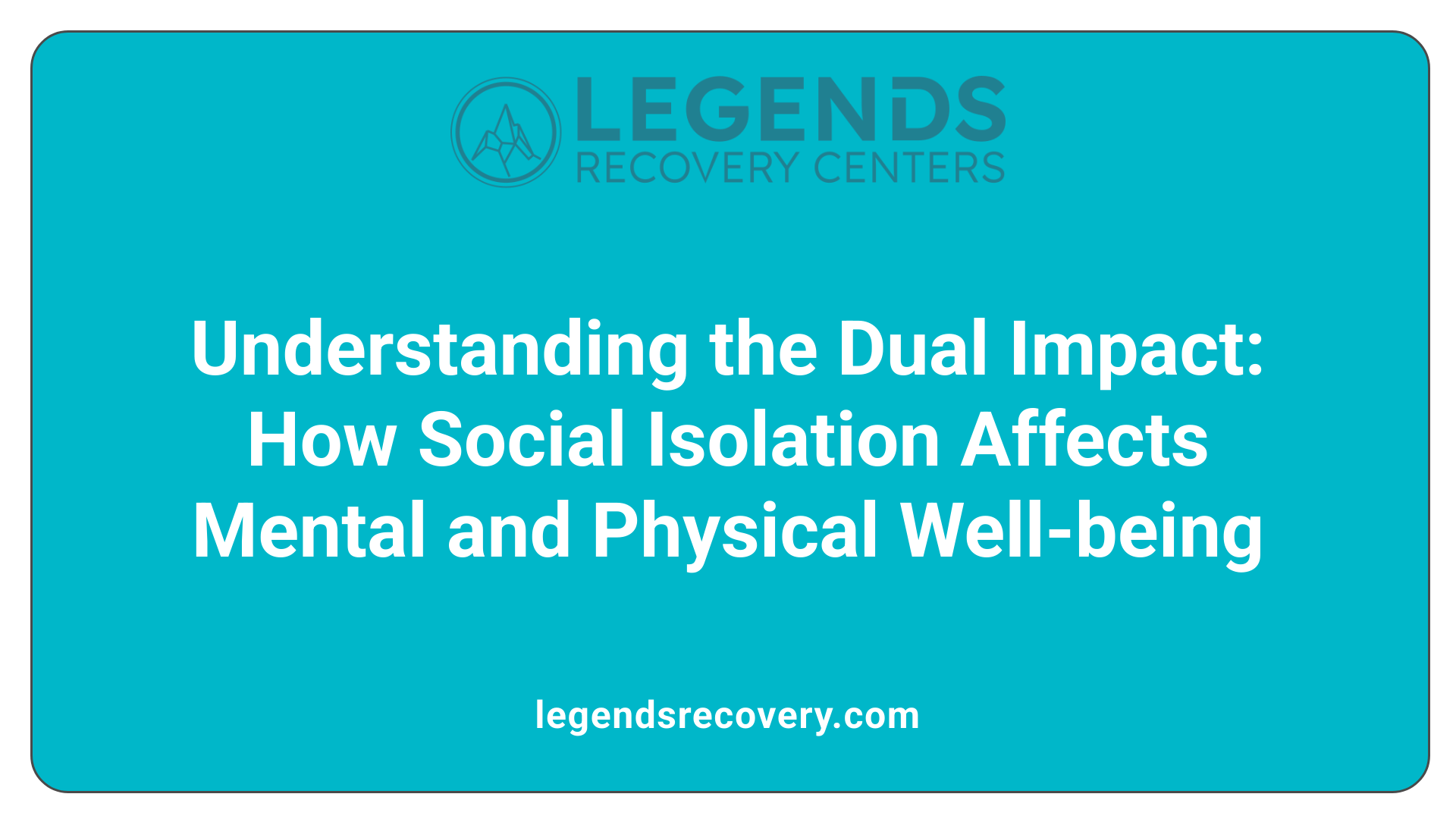
Social isolation exerts a significant influence on mental health and complicates the process of addiction recovery. It elevates the risk of mental health conditions such as depression, anxiety, and suicidal ideation. Individuals experiencing social disconnection often feel hopeless and less motivated to pursue help or adhere to treatment plans.
Beyond mental health, social isolation affects physical health by increasing the likelihood of cardiovascular issues like heart disease and stroke. It also weakens immune function, making individuals more vulnerable to infections, which can further hinder recovery efforts.
Loneliness, a subjective feeling of being disconnected, often accompanies social isolation and compounds feelings of hopelessness. This emotional state discourages engagement in social activities and treatment, reducing support systems critical for sustained recovery.
Furthermore, studies indicate that social isolation impairs immune responses and elevates inflammation, mechanisms closely linked to physical health deterioration. This biological impact underscores the importance of social bonds for overall health.
Addressing social isolation through community support, social connections, and targeted interventions improves mental health outcomes significantly. Building networks that foster positive social interactions helps individuals manage stress, reduces feelings of loneliness, and supports ongoing recovery efforts.
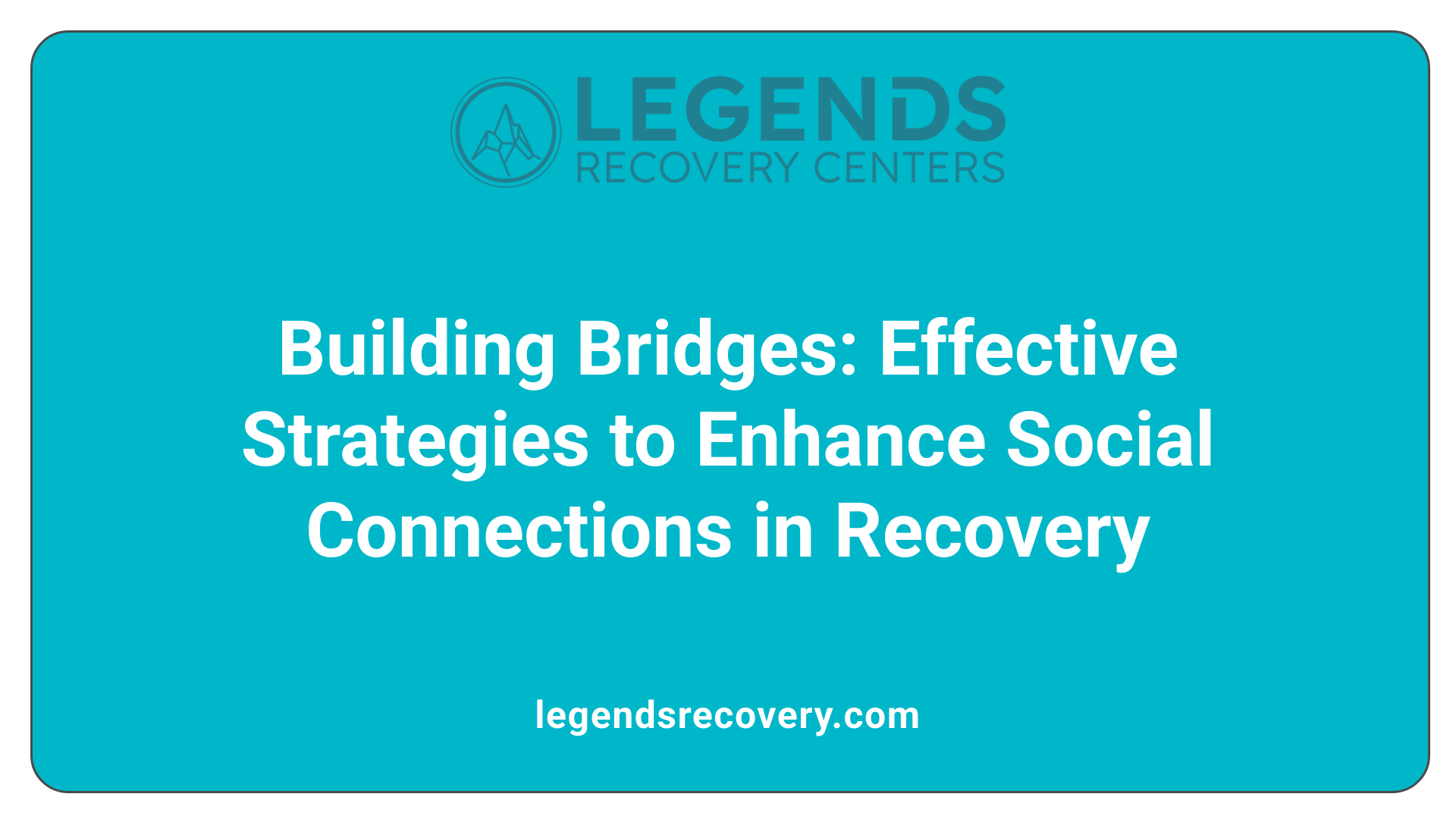
Addressing social isolation is critical for successful recovery from substance use. Several practical strategies can help individuals reconnect with others and build social support networks.
Firstly, engaging in community activities such as support groups—like Alcoholics Anonymous (AA)—volunteering, or participating in local events offers opportunities to meet others with similar experiences. These activities foster a sense of belonging and purpose, which are vital for mental health.
Secondly, utilizing technology plays a significant role. Video calls, social media platforms, and online forums provide accessible ways to maintain contact, especially for those with mobility issues or living alone. Regular communication helps reduce loneliness and emotional distress.
Thirdly, rebuilding and maintaining relationships with family, friends, or mentors is essential. Making an effort to reconnect, share progress, and seek support from trusted individuals supports emotional resilience and accountability.
In addition to these, exploring hobbies, taking classes, or joining faith-based or community groups can expand one's social circle and introduce new, supportive connections.
Practicing self-compassion, addressing emotional barriers such as shame or guilt, and seeking professional counseling when necessary are also crucial. These steps help individuals develop confidence in social interactions and sustain social engagement.
Overall, a combination of participation in social activities, leveraging technology, nurturing personal relationships, and professional support provides a multi-faceted approach to combating social isolation, promoting emotional well-being, and bolstering recovery.
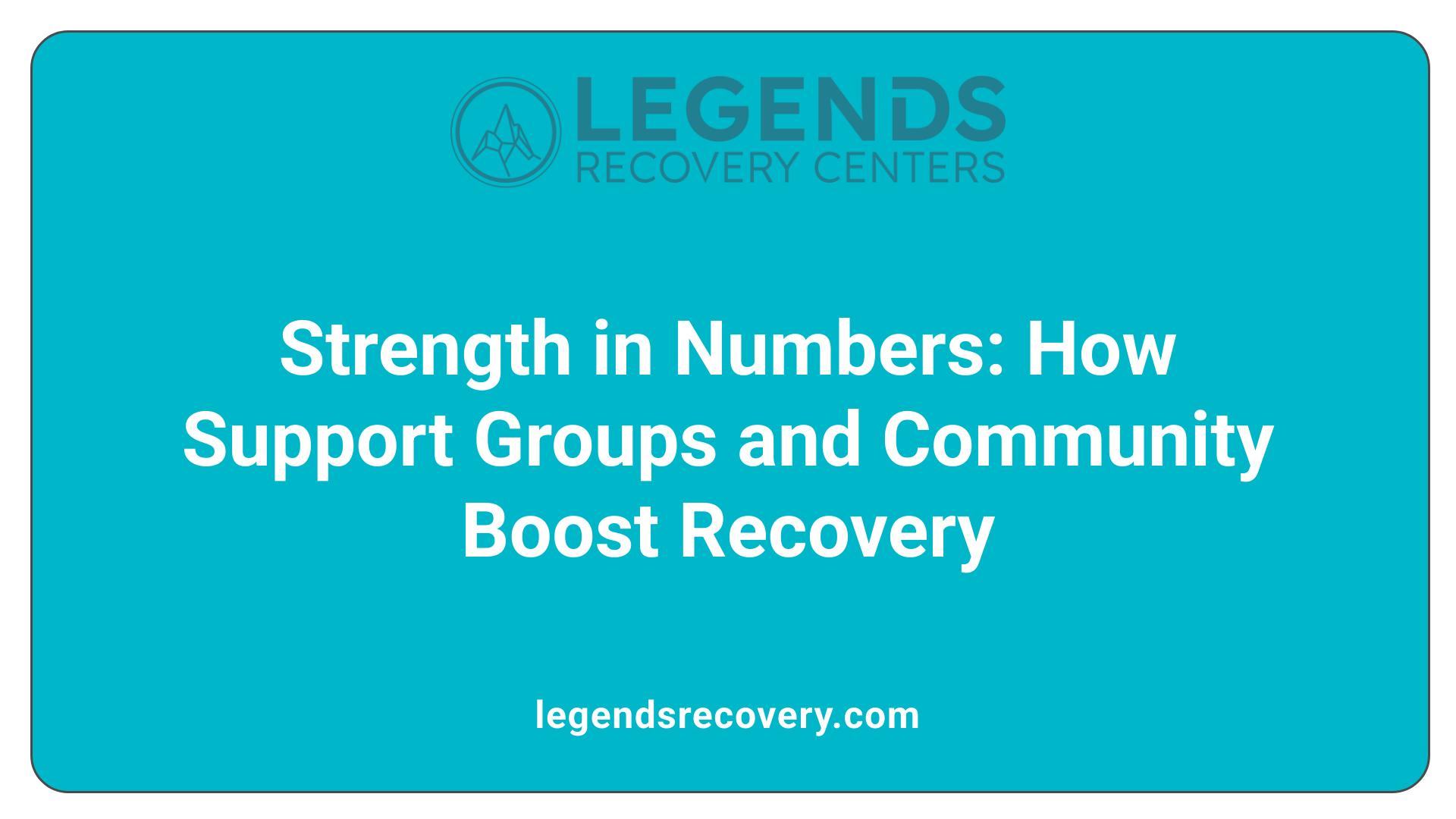
Support groups like Alcoholics Anonymous (AA) are widely recognized for their positive impact on recovery from substance use disorders. Engagement in these groups provides more than just a sense of belonging; they foster accountability, shared experiences, and ongoing motivation. Members often find encouragement through peer support, which helps to reinforce sobriety and develop coping strategies for everyday challenges.
Studies show that participation in AA correlates with higher abstinence rates and improved quality of relationships. The mutual help environment creates a safe space where individuals can express their struggles without judgment, making it easier to navigate the emotional ups and downs of recovery. Moreover, regular attendance solidifies a commitment to sobriety, reducing the risk of relapse.
Recovery homes, such as Oxford Houses, serve as communal living environments that explicitly promote social support. These homes foster a sense of community among residents, offering stability and shared accountability. Longer stays in recovery homes are linked to better recovery outcomes, including sustained abstinence.
The structured environment facilitates positive social interactions and helps rebuild social skills often compromised by addiction. These homes also serve as a bridge to reintegration into society, providing opportunities for residents to establish new relationships based on sobriety and mutual respect.
Post-treatment community involvement is vital for maintaining long-term recovery. Alumni programs offered by treatment facilities or support groups enable individuals to stay connected, share progress, and access ongoing support.
Community engagement through volunteer work, mentorship roles, and participation in sober activities not only offers purpose but also strengthens social bonds. These ongoing connections help prevent feelings of loneliness and social isolation, which are known to increase relapse risk.
Social support in various forms—whether through organized groups, communal living, or community activities—creates a network that enhances resilience against relapse. Connecting with others who understand the journey and challenges of recovery gives individuals ongoing encouragement and a sense of belonging.
| Support Method | Main Benefits | Additional Details |
|---|---|---|
| Support groups (e.g., AA) | Increased abstinence, emotional support, accountability | Fosters shared experiences and coping skill development |
| Recovery homes | Social bonding, stability, long-term sobriety | Longer stays linked to better outcomes, community living |
| Alumni programs | Continued engagement, mentorship, purpose | Reinforces recovery habits and social connections |
The collaborative environment of community-based support is integral to sustaining addiction recovery. It addresses not only the physical aspects of sobriety but also the emotional and social factors that influence ongoing well-being.
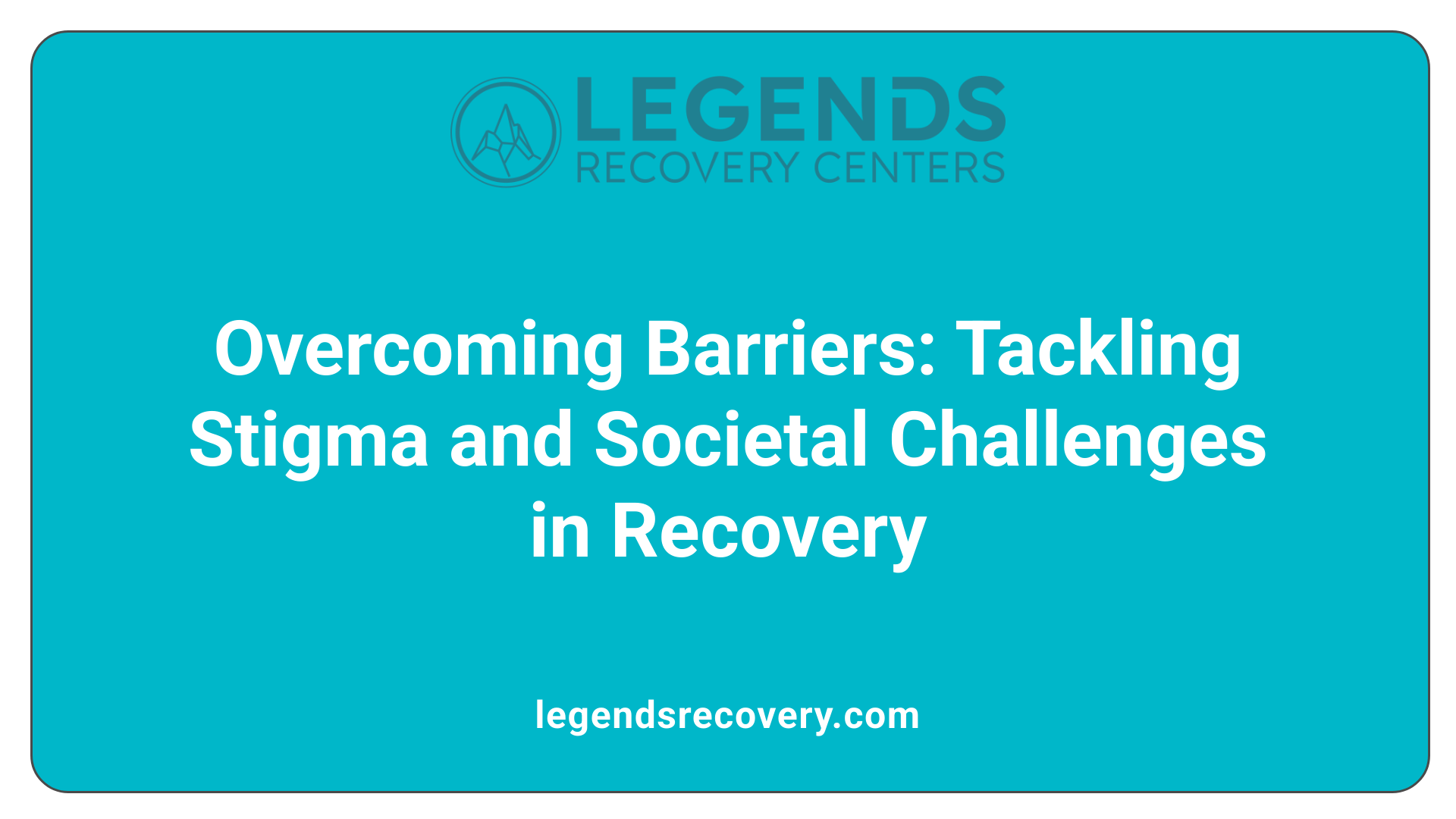
Social skills play a crucial role in the recovery process from substance use disorders. They enable individuals to build and maintain supportive relationships that foster emotional support, accountability, and shared understanding. These connections help people develop healthier behaviors and effective coping strategies, which are essential for sustaining long-term abstinence.
Participation in mutual help groups like Alcoholics Anonymous (AA) or residing in recovery-focused environments, such as Oxford Houses, enhances social support. These settings provide opportunities to practice social skills, exchange encouragement, and establish a sense of belonging, all of which bolster resilience against relapse.
Understanding diverse forms of social support—emotional, informational, tangible, and appraisal—is key to navigating recovery effectively. Effective social skills facilitate access to these resources, particularly during stressful or challenging times, helping individuals respond constructively.
Furthermore, strong social networks foster motivation and reinforce positive changes by providing a safe space for expression and accountability. In sum, social skills are foundational in creating a supportive environment that sustains recovery, improves mental health, and boosts overall well-being.
Stigma and guilt are significant barriers that can lead individuals to withdraw socially. Many facing addiction experience shame and self-blame, which diminish their willingness to seek help or connect with others. This self-imposed isolation often exacerbates feelings of loneliness, depression, and anxiety.
Society’s negative perceptions and misconceptions about addiction contribute further to social rejection. Such attitudes discourage open conversations and can solidify a sense of estrangement.
This withdrawal impairs the availability of social support, which is essential for emotional resilience and recovery. Therefore, addressing stigma—by promoting understanding, compassion, and acceptance—is vital to encouraging individuals to reconnect and rebuild supportive relationships.
Societal barriers include widespread stigma, lack of access to mental health resources, and inadequate community support systems. Economic challenges such as unemployment, financial instability, and lack of affordable treatment options also hinder recovery efforts.
These barriers can deter individuals from seeking treatment due to fear of judgment or financial hardship. Moreover, limited social infrastructure may restrict access to housing, employment, and stable social environments crucial for maintaining sobriety.
Overcoming these hurdles requires policy interventions, public education campaigns, and community-based programs aimed at reducing stigma, increasing access to care, and creating economic opportunities for those in recovery.
Combating misconceptions about addiction involves public education, awareness campaigns, and open dialogues to foster understanding and reduce stigma. Sharing success stories and emphasizing addiction as a treatable health condition can shift societal attitudes.
Promoting acceptance also entails involving families, community leaders, and policy makers in creating supportive environments. Education programs should highlight the importance of social connections, the realities of recovery, and the impact of societal factors.
Efforts like peer support programs and community involvement can further help normalize conversations around addiction, encourage empathy, and build inclusive support networks conducive to sustained recovery.
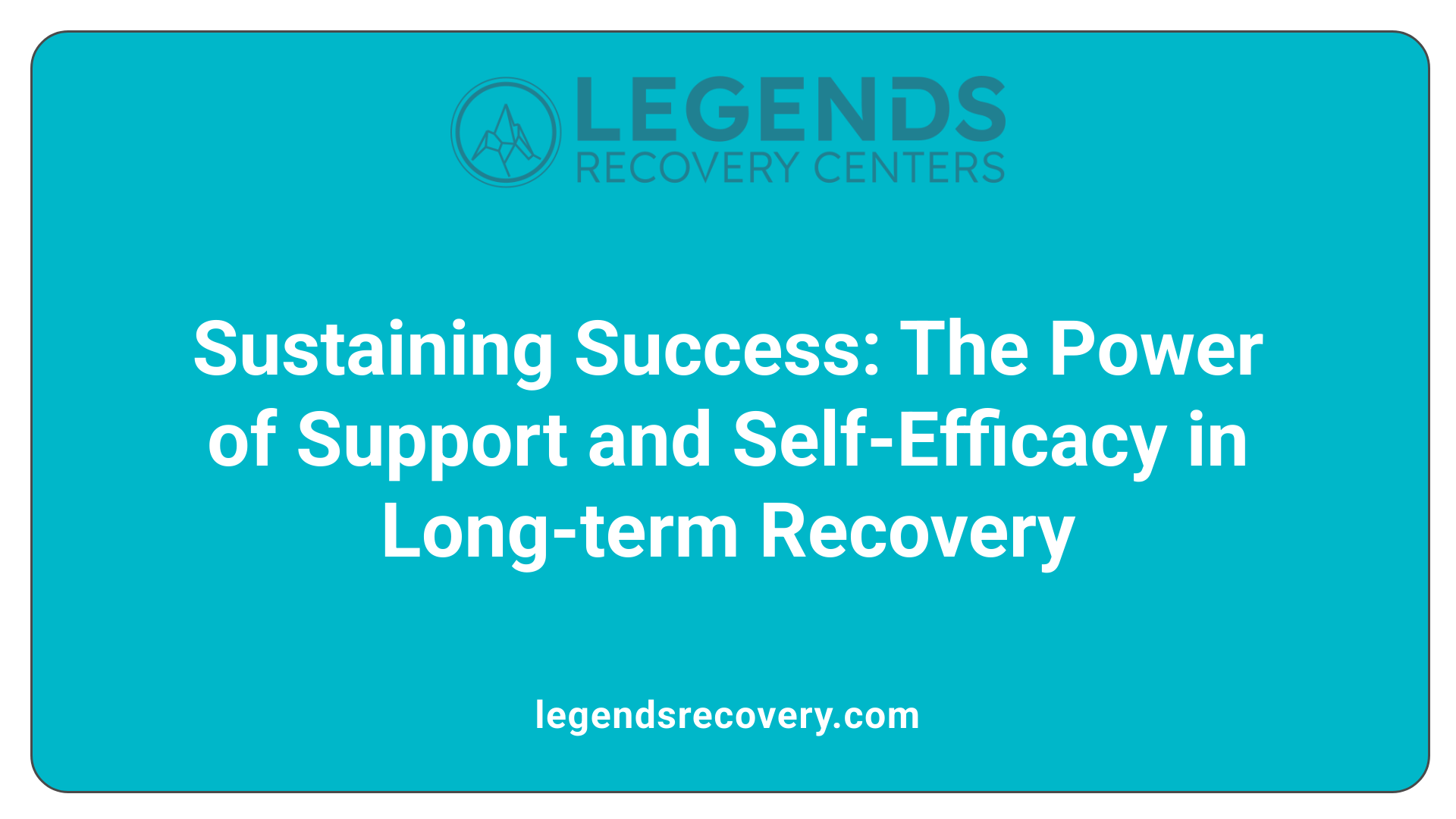
Social isolation significantly affects mental health and complicates recovery from addiction. When individuals feel isolated, they are more likely to experience increased anxiety, depression, and suicidal thoughts. This emotional distress can make it harder to stay committed to treatment plans and maintain sobriety.
Beyond mental health, social isolation has tangible physical impacts. It is linked to a higher risk of cardiovascular issues such as heart disease and stroke, as well as weakened immune functioning. The feelings of loneliness—an emotional component often tied to social disconnection—can foster hopelessness and reduce motivation to seek help.
Loneliness also hampers the immune system, making individuals more vulnerable to infections, which can delay recovery or worsen health outcomes. Addressing these issues requires actively fostering social connections through community involvement, peer support, and targeted interventions aimed at reducing social isolation.
Building social networks and creating supportive environments are crucial steps in promoting mental health, strengthening recovery resilience, and helping individuals overcome the barriers posed by loneliness.
Addressing social isolation is not merely an adjunct to addiction treatment—it is a foundational element that influences mental health, physical well-being, and the sustainability of recovery. Building and maintaining social connections through community involvement, peer support, and professional interventions can create a resilient support network capable of resisting relapse, fostering hope, and promoting overall well-being. As the evidence shows, enhancing social skills, reducing stigma, and empowering individuals to forge meaningful relationships are vital steps toward achieving sustained recovery. In a society that often stigmatizes addiction, creating accepting, connected communities is essential for helping individuals rebuild their lives and thrive in recovery.